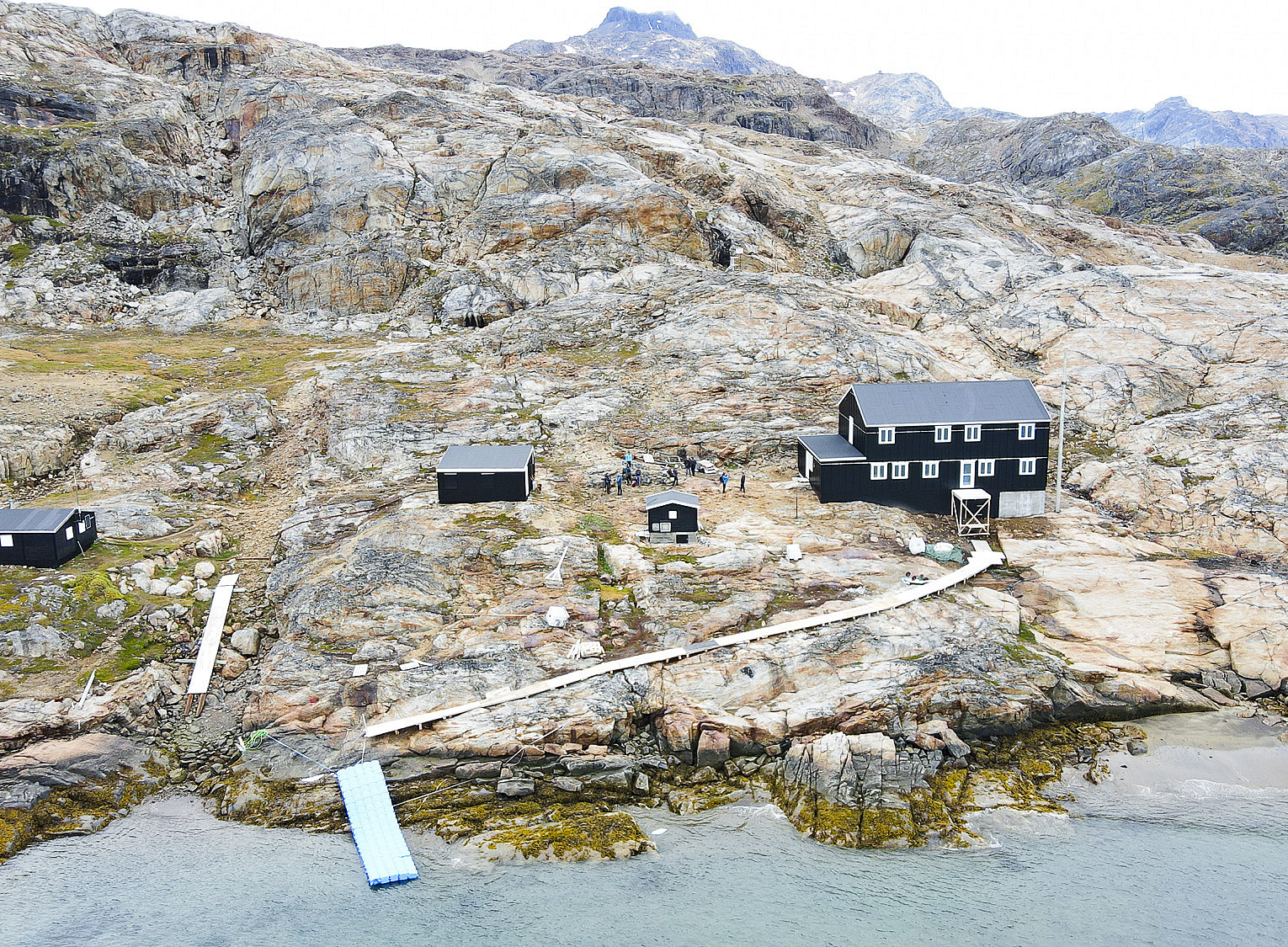The extensive beach with fine sand is almost reminiscent of the Caribbean. It is created by the sediment-enriched water that meanders into the sea. However, tourists rarely stray here. After all, even in summer, the average temperature is just 11 degrees Celsius.
Nevertheless, this patch of wilderness is not completely deserted. Some 2,000 people live on the Ammassalik Island in Eastern Greenland and researchers and students from the University of Graz regularly visit the main town, Tasiilaq, and the melting stream of the Mittivakkat Glacier. They study the changes in the ice cover in the Arctic, the effects on the climate and the flora and fauna. Students get to know the unique ecosystem of the Arctic, learn how to take measurements in the field, and gain an insight into the culture of the inhabitants of East Greenland.
Northernmost building
The starting point for the activities is the Sermilik research station, where the University of Graz has been operating its northernmost building since 2023. When completed, the two-storey building will offer space for up to 25 people, who will then live and work in modern rooms and laboratories. This will significantly expand the station, which has been existing since 1970, and enable year-round research and teaching in the Arctic.
This was made possible by entrepreneur Christian Palmers. He wanted to create a place in the Arctic that is open to researchers and students from all disciplines, both from Austria and other countries. The University of Graz, with its traditionally close ties to Greenland, was the ideal partner for this.
Climate change
There is still some final work to be done before the station can really start operating all year round. But climate change is causing delays. The Greenland ice sheet is melting at an unprecedented rate, sending icebergs into the fjord in front of the station. However, in order for materials and equipment to be delivered by ship, the sea must be safely navigable. This situation shows how important and urgent research at the station is to understand the consequences of climate change.
Master's students can still register for the next excursion in the summer semester and gain valuable experience there. From the middle of the year, the station will also be fit for scientists. At a public information event on 14 March in large lecture HS 12.11, in the "Heizhaus", the opportunities for teaching and research at the Sermilik Research Station will be explained. Students and researchers from all disciplines are invited to find out more about this exciting and forward-looking project. The Arctic is waiting for you!
